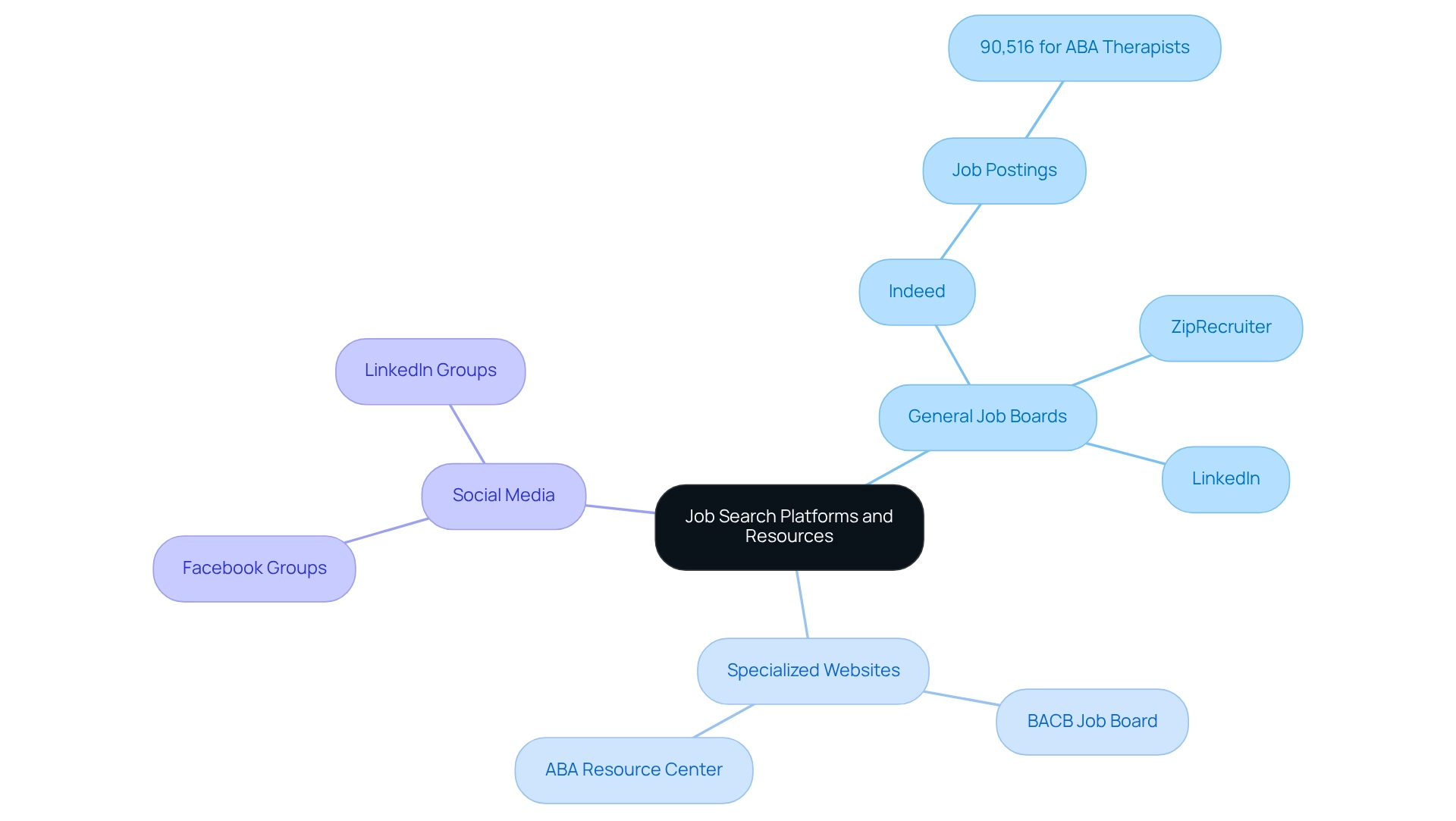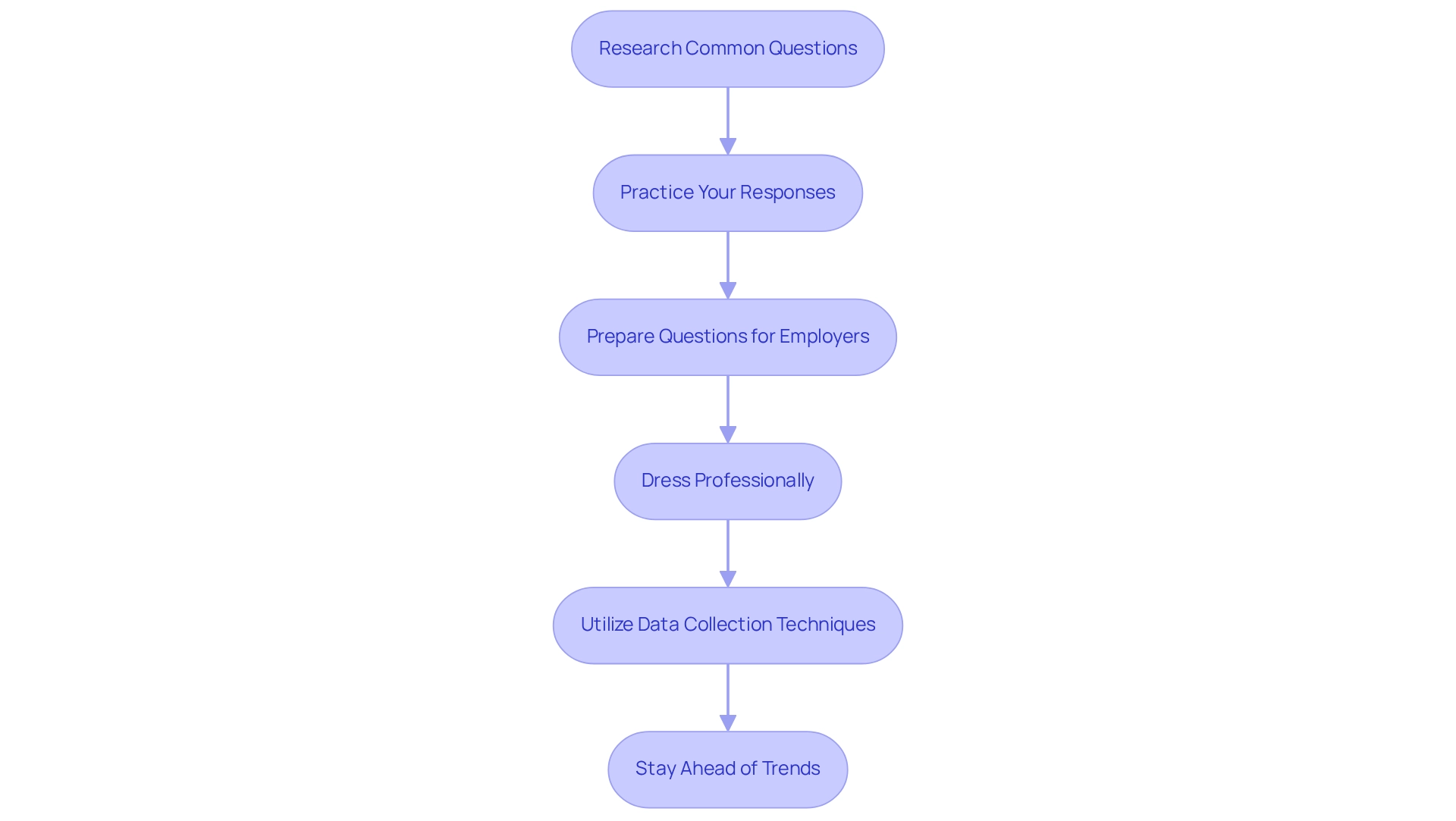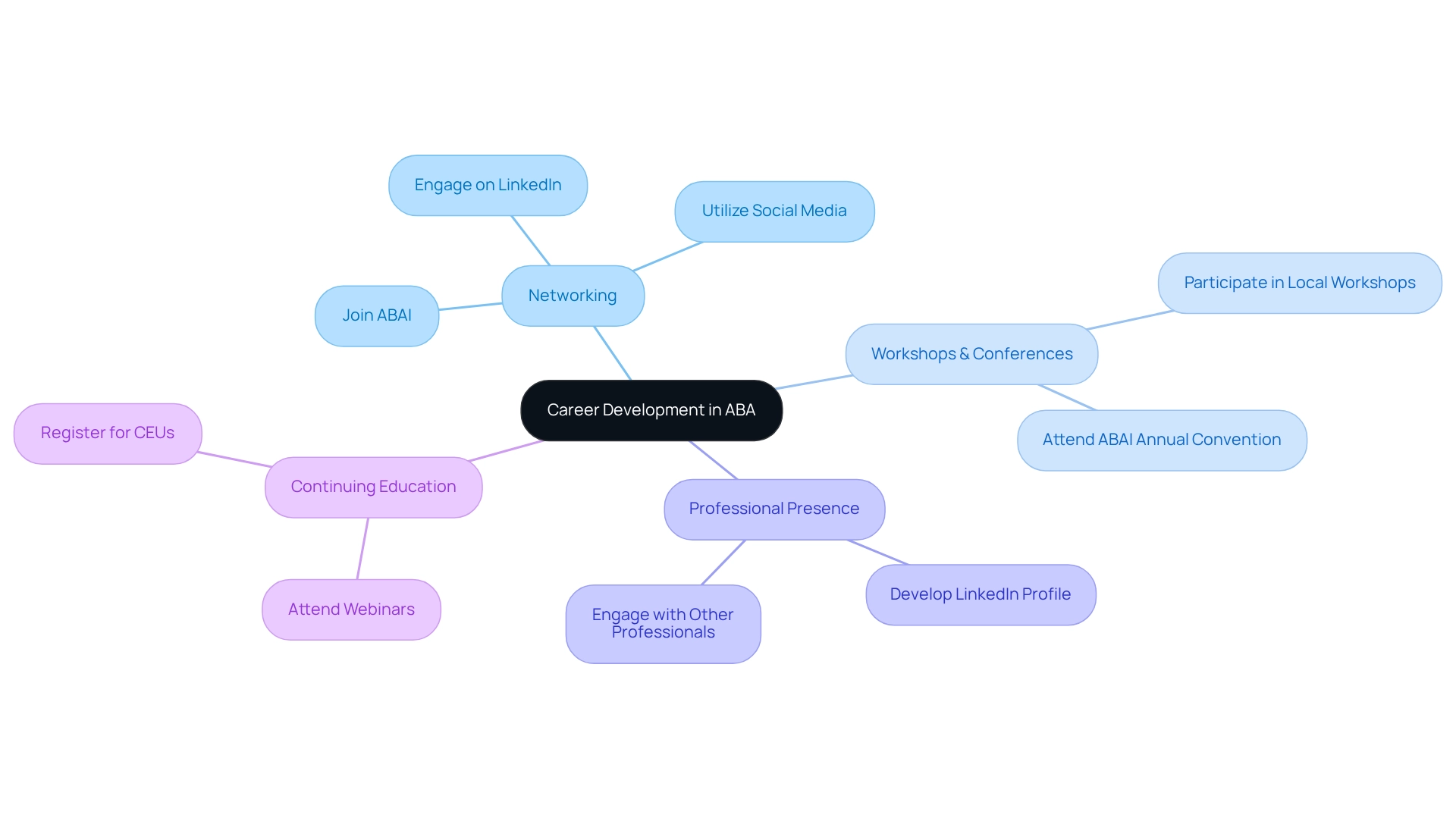May 28, 2025

To find behavior technician jobs near you, candidates must evaluate their qualifications, harness job search platforms effectively, prepare thoroughly for interviews, and engage in networking and continuous learning. By:
candidates can significantly enhance their job prospects in the expanding field of Applied Behavior Analysis (ABA). This proactive approach not only positions them favorably in the job market but also aligns with the growing demand for qualified professionals in this vital area.
In the dynamic field of Applied Behavior Analysis (ABA), the role of a behavior technician is increasingly vital. With the demand for qualified professionals surging, aspiring candidates must navigate a multifaceted journey to secure their positions.
What essential qualifications should one possess?
How can relevant experience be gained?
Mastering job search strategies and preparing for interviews are critical steps in shaping a successful career.
This article delves into the key components necessary for aspiring behavior technicians, offering insights and practical tips to enhance their prospects in a thriving job market. By understanding these elements, candidates can position themselves effectively in this competitive landscape.
To successfully navigate the job market for support specialist roles, it is crucial to utilize a range of job search platforms. Consider this: the demand for Board Certified Behavior Analysts (BCBAs) has surged by 14% from 2022 to 2023. This statistic underscores the importance of employing diverse job search strategies to secure a position in this growing field. Start by exploring popular job boards such as:
These platforms collectively list thousands of opportunities. For instance, Indeed currently features over 90,516 job postings for ABA therapists, highlighting the robust demand in this sector.
Setting up job alerts on these platforms can streamline your search. By customizing alerts based on your criteria, you will receive timely notifications about new job postings, ensuring you never miss an opportunity. Have you considered how job alerts could simplify your recruitment efforts?
In addition to general job boards, specialized websites dedicated to ABA careers, such as:
offer niche listings that may not be found elsewhere. These platforms are tailored to the unique needs of the ABA community, providing targeted job opportunities that align with specific qualifications.
Social media also plays a crucial role in job searching. Joining relevant groups on platforms like Facebook and LinkedIn can connect you with a community of professionals who frequently share job postings. Engaging with these groups not only provides access to unadvertised positions but also allows for networking and learning from others in the field. How might networking within these communities enhance your job search experience?
The employment landscape for support specialists is flourishing, with a staggering increase of 1,942% in the demand for BCBAs from 2010 to 2018. This trend affirms the promising outlook for prospective candidates in the ABA therapy field. By combining traditional job boards with specialized resources and social media engagement, candidates can significantly enhance their chances of finding the right job in ABA therapy. As Steven Zauderer, CEO & Founder, notes, "The BCBA job market is experiencing significant growth, making it essential for candidates to stay informed and proactive in their job search." Embrace these strategies to ensure you are well-positioned in this thriving market.


Participating in professional groups is essential for practitioners. Membership in organizations such as the Association for (ABAI), which boasts over 5,000 members, not only provides access to valuable resources but also opens doors to networking opportunities that can significantly enhance career prospects. This platform allows professionals to connect, share knowledge, and collaborate on best practices in the field.
Attending workshops and conferences is another vital step. These events are designed to foster connections among professionals while showcasing the latest advancements in ABA therapy. For instance, the upcoming ABAI Annual Convention in 2025 is expected to attract thousands of attendees, providing a unique opportunity to learn from industry leaders and gain insights into emerging trends. Research shows that participation in such events can lead to improved job satisfaction and career advancement.
Establishing a professional presence on platforms such as LinkedIn is crucial for practitioners. By developing a strong profile and engaging with other professionals, BCBAs, and organizations, individuals can broaden their professional network and remain updated on job opportunities and industry advancements. Networking through social media has become increasingly important, with studies indicating that over 70% of job seekers find employment through networking.
Lastly, pursuing continuing education is vital for staying current in the rapidly evolving field of ABA. Registering in classes or webinars that provide Continuing Education Units (CEUs) ensures that professionals in the field stay informed about the latest research and methods. This commitment to lifelong learning not only enhances professional skills but also demonstrates dedication to providing high-quality care to individuals with autism spectrum disorder (ASD).
As Ralph Moller states, "By focusing on the specific needs of the individual with autism, rather than just the diagnostic label, therapy can be adapted to address the individual's specific goals and promote progress." By focusing on these strategies, behavior technicians can significantly improve their career trajectories and increase their chances of finding behavior technician jobs near me, thereby contributing positively to the field of ABA. Furthermore, research indicates that early and intensive ABA therapy leads to sustained gains in various developmental areas for children with autism, highlighting the importance of effective practices in the field.

Aspiring behavior technicians are presented with a wealth of opportunities in a rapidly expanding job market. Understanding the essential qualifications, including educational requirements and necessary certifications like the RBT credential, allows candidates to effectively position themselves for success. Gaining relevant experience through internships and volunteer work is equally vital; it not only enhances a resume but also provides firsthand insights into the daily responsibilities of the role.
Utilizing diverse job search platforms and resources is crucial for navigating the competitive landscape. Candidates are encouraged to explore both general job boards and specialized websites dedicated to ABA careers, while also leveraging social media for networking and job alerts. This multifaceted approach ensures that aspiring technicians can access a broader range of job opportunities and stay informed about industry trends.
Preparation for interviews cannot be overlooked. Candidates should familiarize themselves with common interview questions, practice their responses using techniques like the STAR method, and demonstrate professionalism through their appearance and demeanor. Engaging in continuous learning and networking through professional associations further enhances career prospects, allowing behavior technicians to stay updated on industry advancements and connect with peers.
In summary, a successful career as a behavior technician hinges on a combination of qualifications, practical experience, strategic job searching, and ongoing professional development. By embracing these elements, candidates can navigate the path to becoming proficient behavior technicians, contributing significantly to the field of Applied Behavior Analysis and making a positive impact on the lives of those they serve.
What is the minimum education requirement for support roles in this field?
Candidates typically need at least a high school diploma or equivalent to qualify for support roles.
How can additional certifications impact job prospects for behavior technician positions?
Pursuing additional certifications, such as the Registered Behavior Technician (RBT) credential, can significantly enhance job prospects and demonstrate a commitment to the field.
What essential skills should candidates assess for roles in this field?
Candidates should assess their communication abilities, empathy, and understanding of Applied Behavior Analysis (ABA) techniques, as these skills are crucial for effective interaction with clients and their families.
What are the certification requirements for becoming a Registered Behavior Technician (RBT)?
To become an RBT, candidates must complete a 40-hour training course and successfully pass the RBT exam administered by the Behavior Analyst Certification Board (BACB).
What is the significance of RBT certification in the support practitioner job market?
As of 2025, approximately 80% of support practitioners are expected to hold RBT certification, reflecting the industry's emphasis on qualified professionals.
How can gaining practical experience benefit candidates pursuing support roles?
Gaining practical experience through internships or volunteer opportunities in environments that implement ABA techniques can enhance a candidate's resume and provide insight into the daily duties and challenges faced by support specialists.
What is the projected job market trend for Registered Behavior Technicians?
The job market for Registered Behavior Technicians is projected to expand significantly due to the rising need for behavioral analysts.
What is the average salary for Registered Behavior Technicians as of 2022?
The average salary for Registered Behavior Technicians was reported to be $39,000 as of 2022, indicating a positive career trajectory and financial incentive for pursuing certification.
Our expert recruitment strategies and AI-driven sourcing ensure that you receive top-notch candidates quickly, without compromising on quality. Whether you’re looking for BCBAs, Clinical Directors, or RBTs, we’ve got you covered.